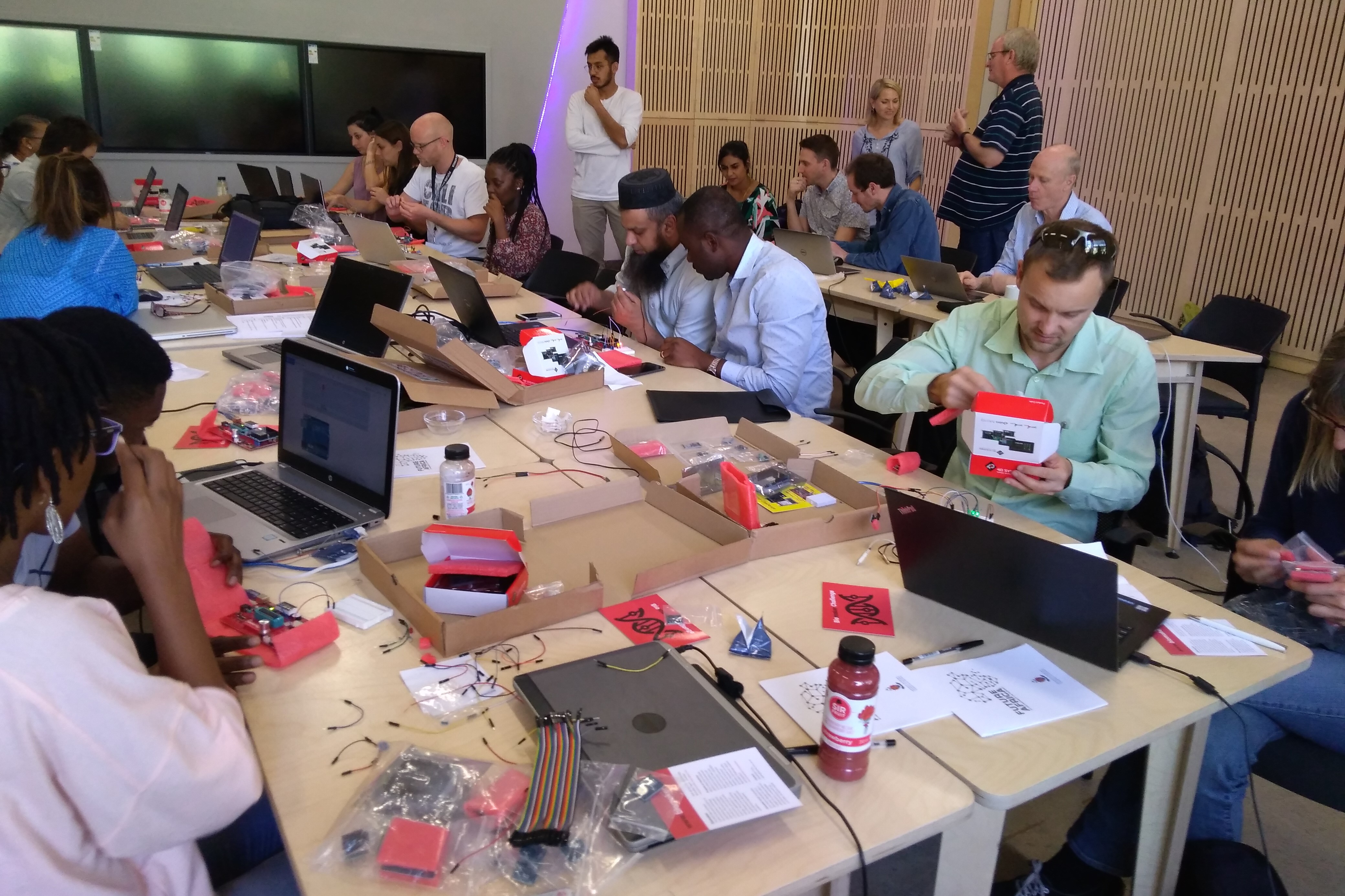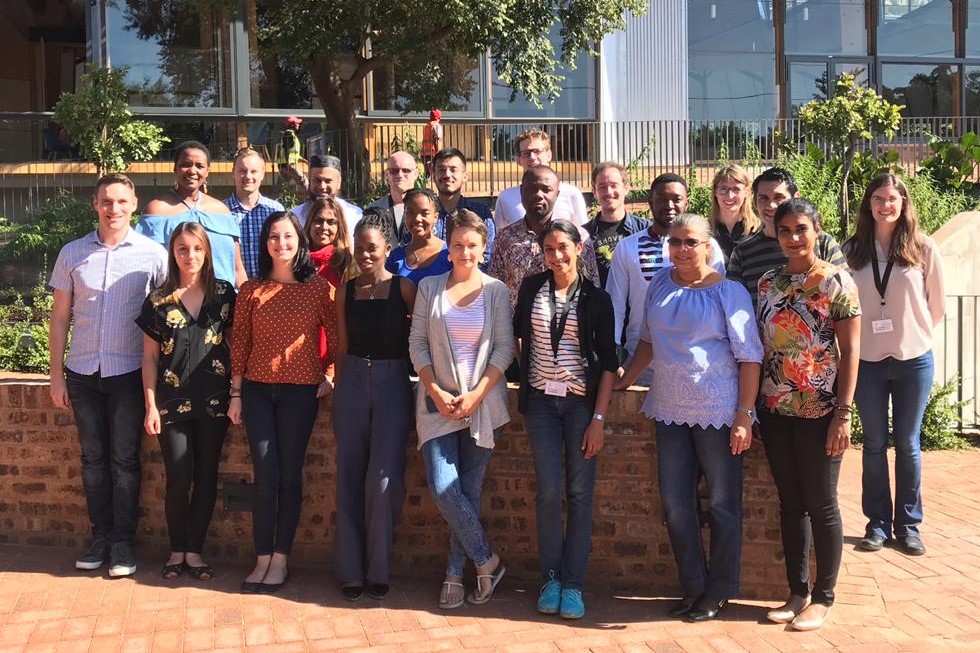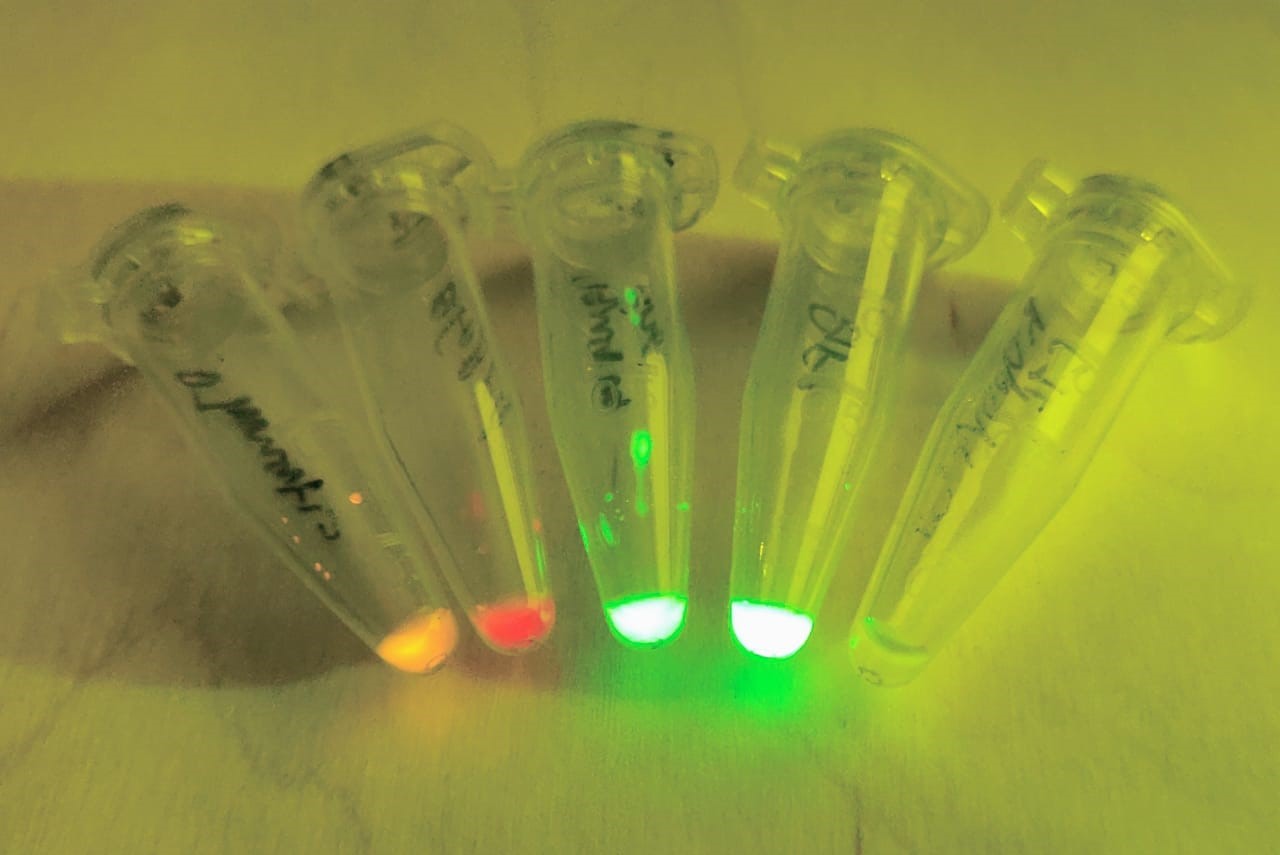FABI researchers co-organize international low-cost viral diagnostics workshop featuring open-source technologies 2019-04-08
A Global Challenges Research Fund-supported international collaboration, aiming to develop point-of-care low cost viral diagnostic (LCVD) assays, convened at Future Africa for a three-day workshop from 13-15 March 2019. Two LCVD collaborators from FABI, Dr Steven Hussey and his postdoctoral Fellow Dr Letrisha Padayachee, co-organized the workshop as team members based at the University of Pretoria. Fifteen established and early-career applicants from South Africa and Ghana with academic, clinical medicine, medical laboratory and start-up biotech backgrounds were accepted into the workshop.
Recently, significant advances have been made in the use of cell-free synthetic biology as a safe, robust and low-cost tool for detecting biological compounds or nucleic acid sequences and activating molecular programmes to generate reporter signals. Complementing this, open-source and easy to use Arduino-based electronics are readily available to inventors for design testing in early diagnostic device prototypes, benefitting from a large online user community. The workshop therefore intended to train potential diagnostics device developers to test aspects of safe biological detection and signal readout using low-cost and open-source synthetic biology and Arduino tools, among others.
The workshop included eight theory-based and practical modules. Participants were exposed to practical training in cell-free expression technologies and basic Arduino-based open-source electronic programming using code-free XOD interfacing. Theory modules included identifying unmet needs, user-focused design goals, paper-based devices and integration, scaling up of diagnostics and diagnostics as an iterative cycle, presented by various members of the LCVD collaboration team and guest speakers including Mr Daniel Mak from KISCH IP.
The participants will continue to share their experiences in diagnostic device prototype development on the online collaborative hub, Slack, with the intention that they will continue their training as a team, begin to implement the skills gained and have the opportunity to work together at a follow-up workshop in early 2020.




